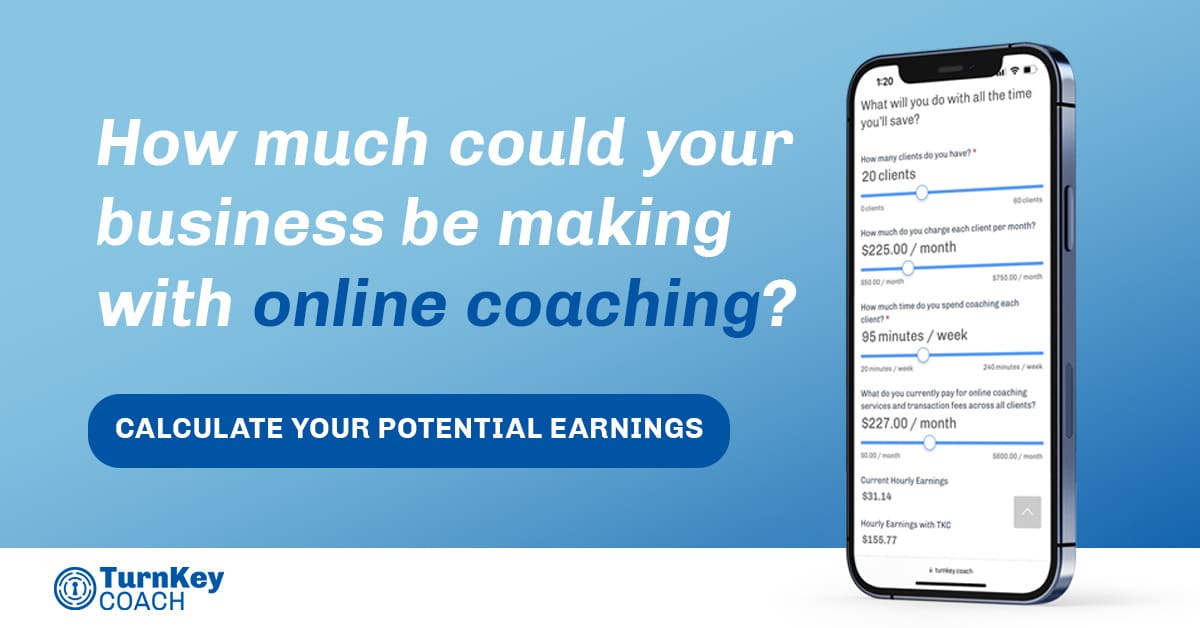
Do You Own a Business or a Job?
Do you own a job or a business? Does owning a business make sense for you? Either way, you need to approach this intelligently, thinking about the business you’re in and the job you have.
If you have put in the work to become a good coach, it’s time to get clients. One of the first questions that must be answered is whether you should work for someone else or start your own business. There are benefits and disadvantages to both approaches.
Employee/Contractor
You can work as an employee for a gym. If you can find a position at a good wage this can be a great way for a new coach to focus on developing their craft and gaining experience in the industry. The company you work for should handle virtually all other tasks. You simply receive a paycheck and benefits, and coach clients.
Many gyms hire coaches as contractors, meaning you are not an employee in the traditional sense. You receive a 1099 instead of a W2 for taxes and operate as a separate business entity. This arrangement usually gives a coach much more freedom in their practice, at the cost of some added responsibilities. Contractors can usually decide what their hours will be and how they want to coach (within a range set by the parent organization). The company will likely handle advertising, client payments, infrastructure, building maintenance, and provide equipment. You may be expected to at least partially find new clients, pay to use gym space, pay for insurance, provide healthcare for yourself, and of course, pay your own employment taxes.
This might sound a lot like owning your own business, and you will likely need to have a legal business entity to be a contractor. But the key distinction here is: Can you sell this business when you retire? If the answer is no, then you own a job, not a business.
Business Owner
Even someone who owns an independent gym might only own a job. Are you renting a retail space? If so, you are not building a real estate asset. Do you employ other coaches who can coach all of the gym’s clients? Will your clients be satisfied being coached by a different person? If not, then the entire business rests on your labor performance. This is also not a saleable asset.
If you own a gym and have the ability to step back as an owner, this offers you a lot of freedom. In this administrative role, the sky’s the limit. You can change anything you like, but of course, this comes with a lot of responsibilities. Now you have to handle advertising, equipment purchases, insurance, client payments, utilities and rent, and taxes. You also have to shoulder all of the risk if the venture isn’t profitable. You will likely have employees or contractors to hire, fire, and manage.
This can be a very stressful role. It’s not for everyone. A good business owner will spend much of their time working on the business, not in the business as a coach. These are very different roles, and many coaches will find that running a business on top of their daily coaching duties is more trouble than it is worth.
If this is still something you want to pursue, consider buying commercial space for your gym. This allows you to build a real estate asset, and possibly sublease some of the building to others. Even if your coaching business is not transferable when you retire, you still have an asset.
The Online Advantage
The overhead costs of a traditional gym can make this type of business challenging. A fully outfitted gym can have a substantial equipment cost as well. Online coaching alleviates many of these issues, by providing a drastically cheaper platform (no physical space expenses) and no equipment costs. Clients either have home gyms they purchase themselves or train at a commercial gym on their own.
Also, coaching online takes significantly less time per client session, allowing you to handle more clients—and potentially offer your services at a more competitive price, all while making more profit. Your working schedule can be much more flexible as well, and you can coach from any location.
This online model also opens you up to a truly global market. Anyone with a smartphone and an internet connection can be your potential client. This is helpful whether you are looking for general population clients or you are a specialty coach.
The Hybrid Model
If you own a physical gym with coaching clients, you could transition those clients to an online service. They could still train at the gym, any time they wanted—but their feedback would be remote. This allows more freedom in their schedule and yours as their coach. You can still offer “office hours” where clients can come in for consultations, but these time slots can be as flexible as you need them to be.
If you utilize an online platform like TurnKey Coach, an online coaching practice can be very profitable, without a lot of the limitations of a traditional in-person gym model.


